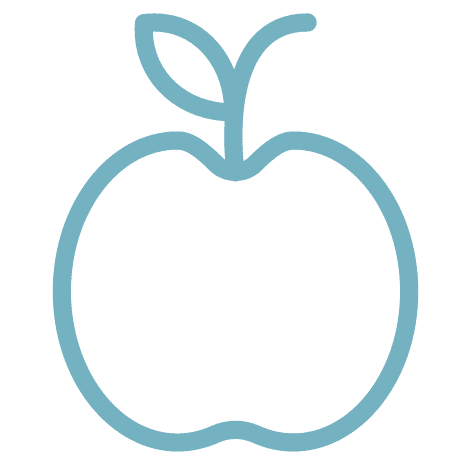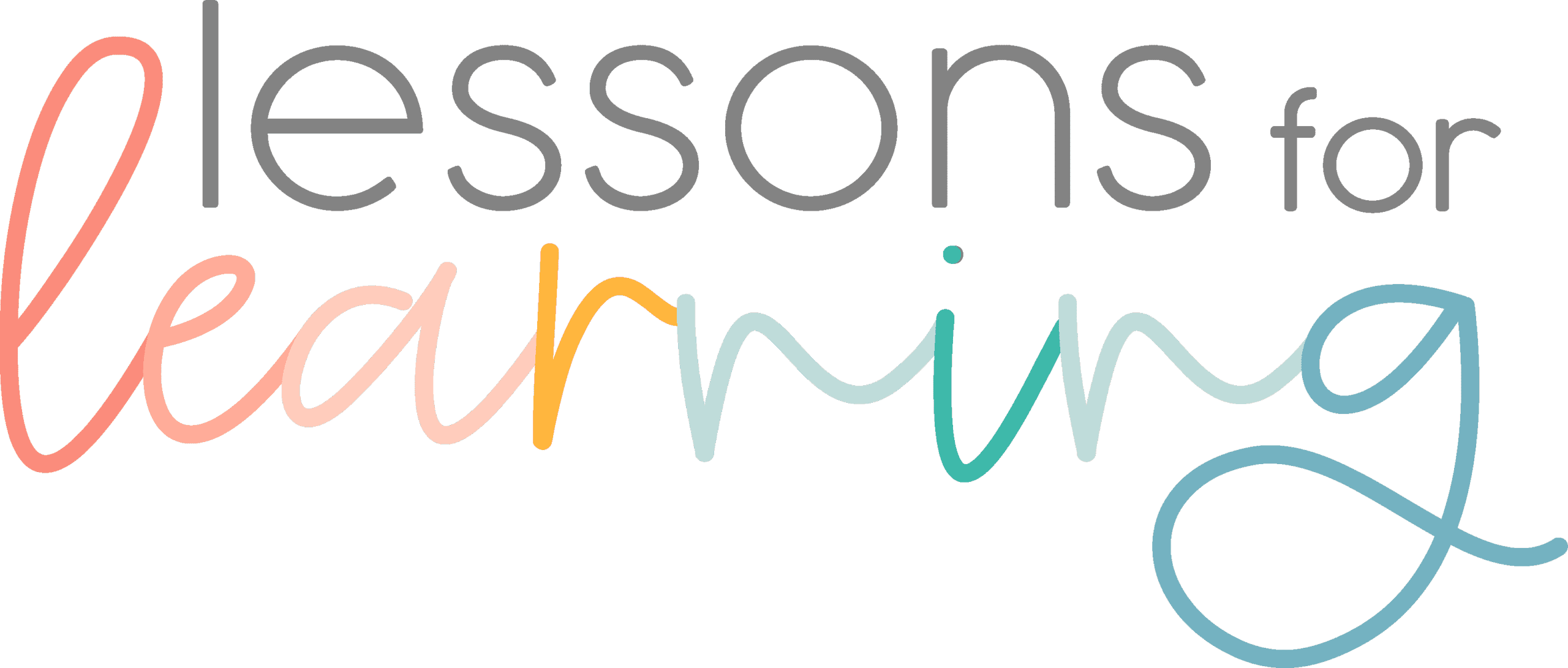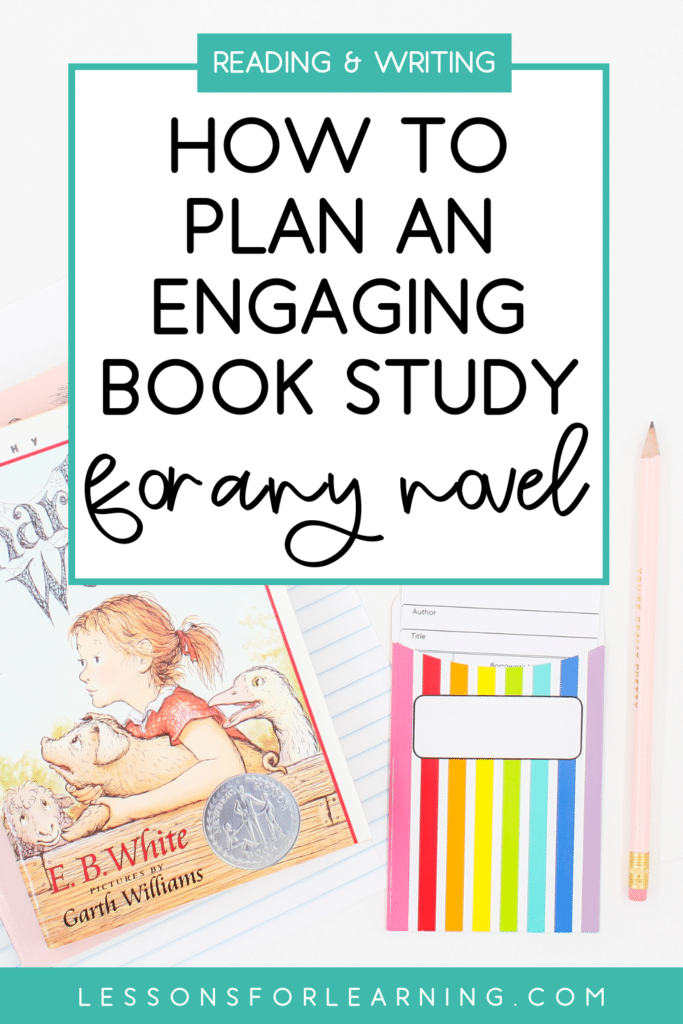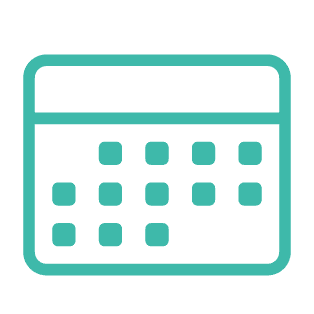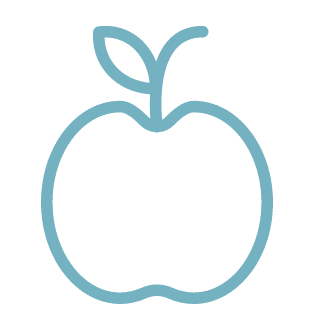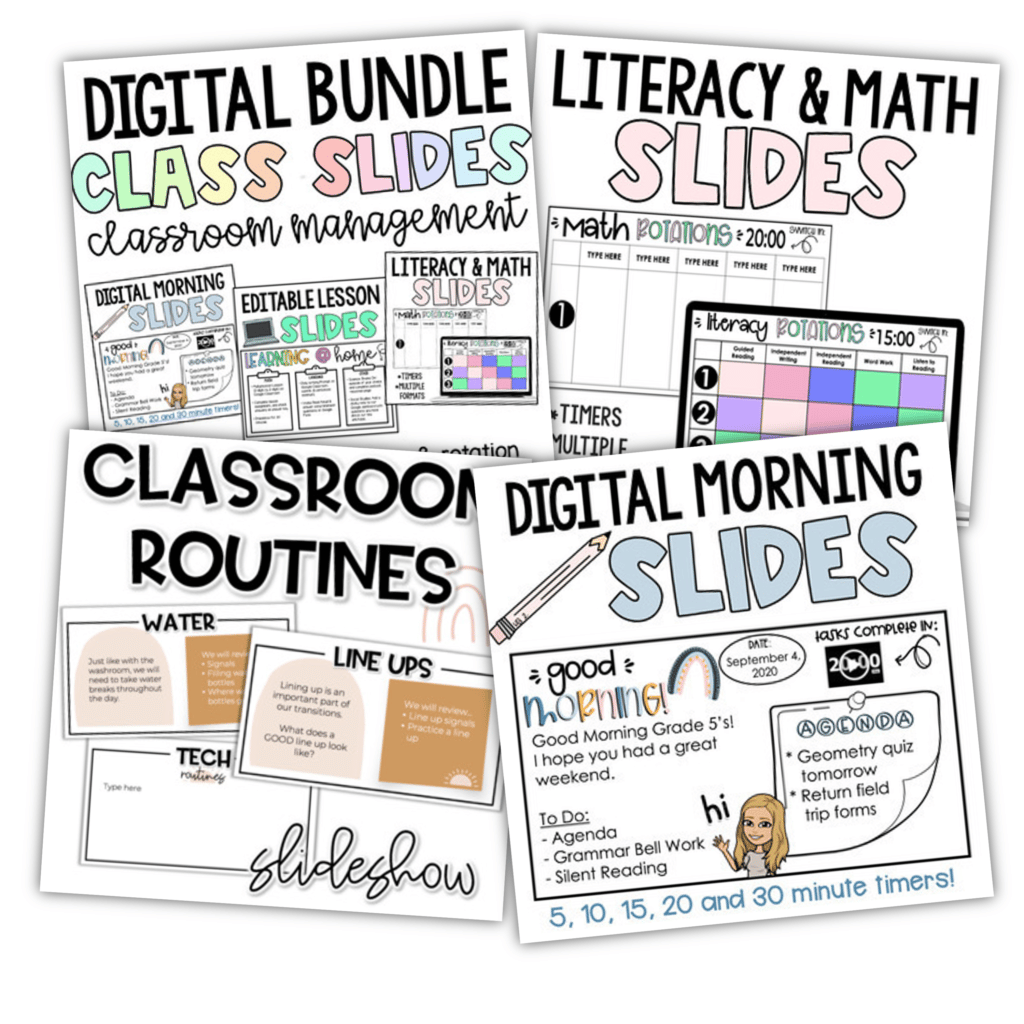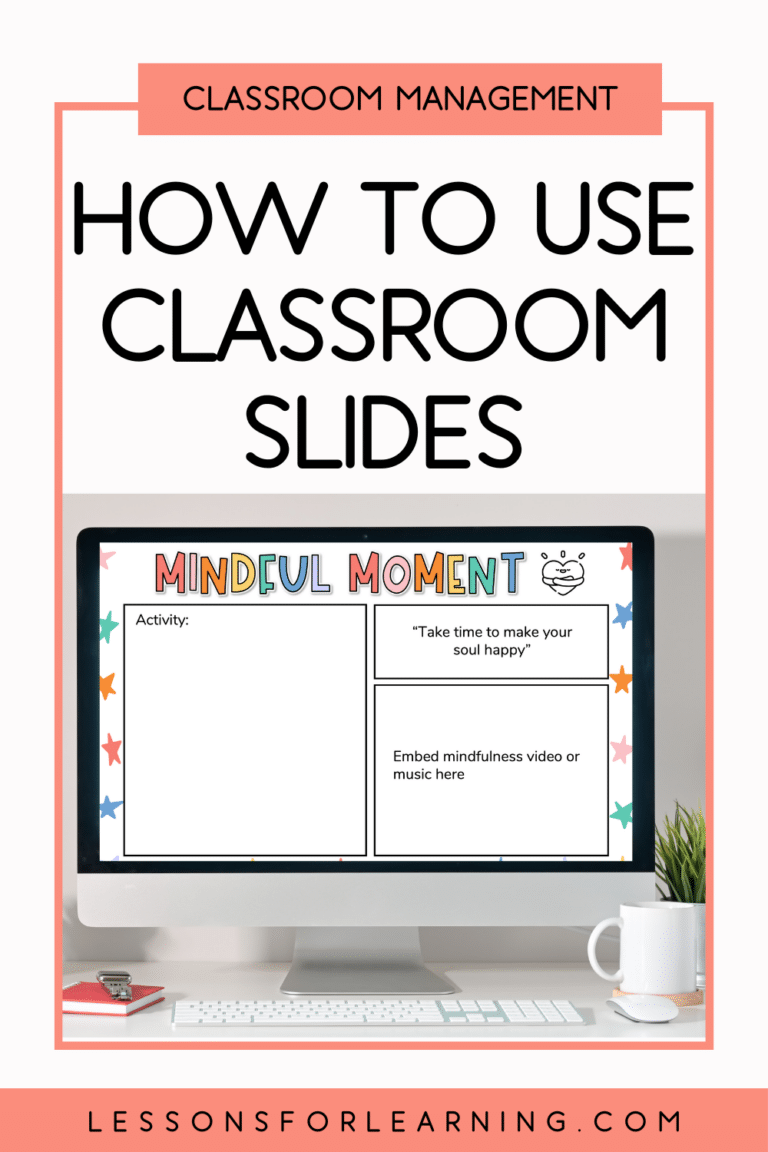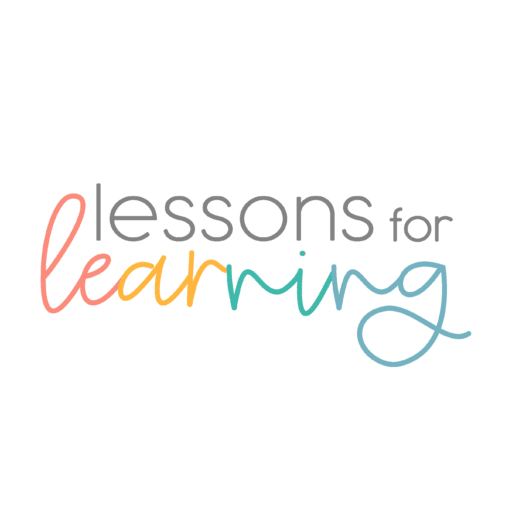So often when we’re teaching and covering curriculum we don’t get enough time to spend on one topic to really complete a deep dive. There’s only so much time and there’s always so much to do. But, a book study is a great thing to schedule into your Language plans for a variety of reasons.
A book study gives you the ability to guide students through deeper literary analysis and comprehension strategies. It is also a chance to increase student engagement, particularly if you’re able to include books to grab your students’ attention. (This post has 15 amazing novels for grades 5-8.)
And a book study might sound daunting but it doesn’t have to be overwhelming to plan. I’m here to share step-by-step how you can implement an engaging book study for any novel in your classroom.
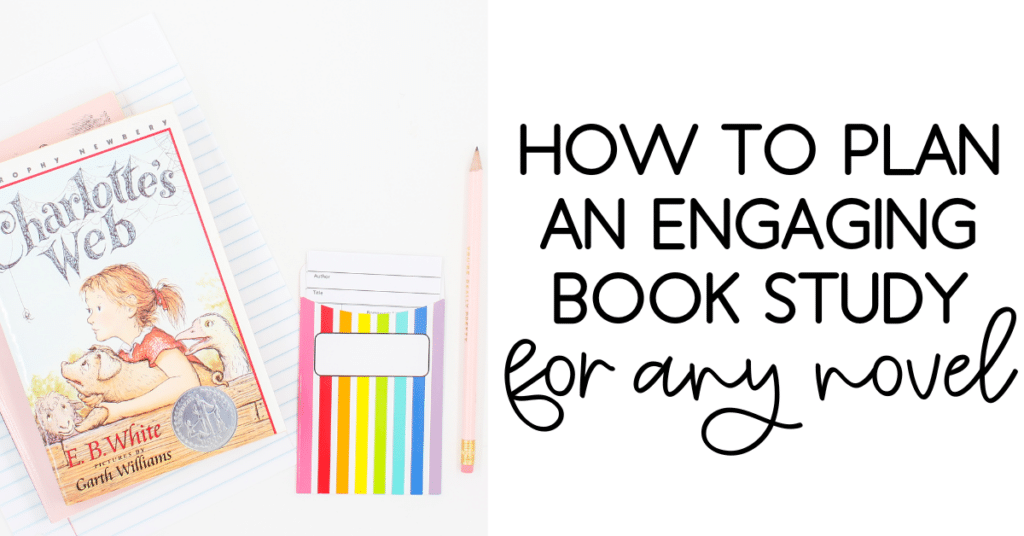
Determine a Reading Schedule
Once you have decided on a novel for your class book study you’ll need to determine a reading schedule.
The first step is to figure out how many chapters there are in the book and how many weeks you want to do the reading for. Then it becomes simple math of dividing the two to determine the number of chapters in a week.
A further element to consider is the students in your class because you will have some stronger readers and some who need more support. In general, with my grade 6’s, I found that 3 chapters a day for 3 days a week was manageable. I determined this based on the length of each chapter on Audible; each was about 5-8 minutes long.
I like doing 3 days a week of reading because it leaves the other days for you to continue any other ELA routines you have (e.g., word work, writing, guided work), plus it can offer time to support students who might need time to review, re-read, or re-listen to the week’s assigned chapters.
Sort out your Key Focuses
Once you know the number of weeks you’ll be reading for, pick a focus for each week. This is where you should reference your curriculum and see if there are gaps you should try to cover with the book study! This is also a good time to look at the long-range plans you created.
If you need help creating long-range plans, I’ve got your back! Read this post for details.
For each week of our class book study, I like to focus on two activities per week related to the reading. It could include any combination of reading comprehension, close reading, writing prompts, related nonfiction reading tasks, or even vocabulary.
Reading comprehension would include such activities as summarizing, predicting, making connections, or even completing a reading quiz to ensure understanding of what has happened in specific chapters.
For close reading, there are tons of options including, the author’s purpose, foreshadowing, setting analysis, character, conflict, theme, symbols, suspense, figurative language and word choice, point of view, and more.
You could even combine these with a writing prompt about something related to your novel or expand students’ connection-making abilities by reading a nonfiction text that focuses on a related real-world theme or issue.
Finally, anytime is a good time to work on vocabulary! You can provide words or have your students find 10 words in the week’s book study readings that they don’t know or want clarification on and then have them define and use them in a sentence. This could even be the start of a big word wall for your book study.
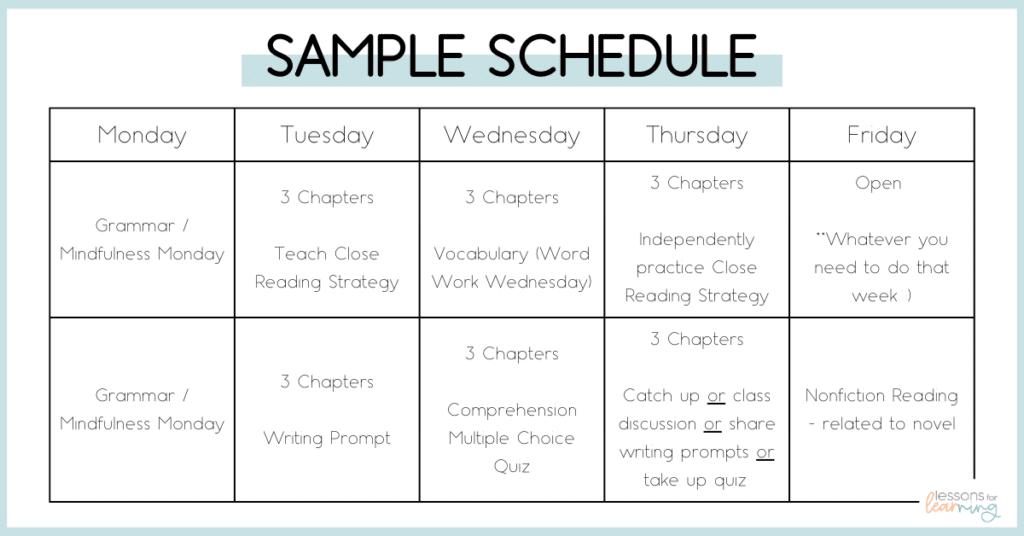
If you are working through a novel for 5-6 weeks, this type of schedule gives you a lot of time to touch on different focuses but is also less overwhelming for the students.
You can pick and choose your focus each week and you can do that with your students in mind. What do they need practice with or what do they need to try? Let that guide your decisions beyond curriculum requirements.
And know that it’s not a matter of students completing 10 vocabulary words each week, plus reading nonfiction, plus doing a comprehension quiz, plus, plus, plus! This would absolutely be overwhelming for students and for you!
My kids have loved having to do only a couple of quick checkpoints or activities each week. It made them feel that the book study was more enjoyable, which was great for getting them to stay interested in reading for the duration of the book study.
They also don’t need to be assessed or evaluated each week! Let the students work in groups, talk things out, brainstorm ideas, and dive into the novel in a non-threatening way. While we want to make sure students gain skills for analysis when we do a book study in class, we also want to make sure that we’re giving the chance for reading to be enjoyable, particularly with a community of learners.
Additional Book Study Tips
Here are some tried and true teacher tips that can help in your next book study unit.
Don’t make worksheets for all of your activities, keep it simple! One option is to create a slideshow with prompts for each week and have students complete the work in their reading/writing journals!
Don’t feel the need to grade everything. Grab your anecdotal notes and do observations as students work through different tasks. Choose 2-3 activities that will be formally assessed and don’t worry about the rest.
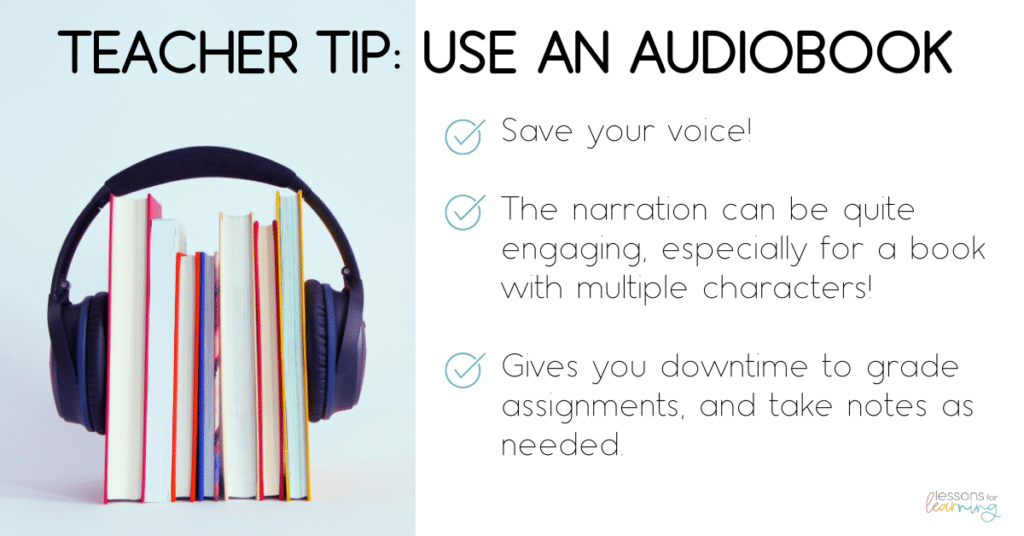
Save your voice and use Audible! The narration is awesome, especially if you read a book with multiple characters! This gives you some downtime to grade assignments, and take notes on what’s happening in specific chapters in order to draft discussion questions you want to follow up with or create close reading prompts for students to complete after listening.
And finally, if you are concerned about kids staying engaged while listening to a novel here are two of my go-to approaches.
- Scan the book ahead of time and project the PDF on the board. I find this helps some of my learners because they can follow along with the reading.
- For some students coloring or doodling while listening to a novel can increase their focus. You could use Canva’s free software to create a few book-themed pages for students to colour or get them to doodle on a blank page and fold it up into a bookmark so they can use it throughout their book study.
At the end of the day spending time with a book study unit can increase student skills, incorporate some much-needed curriculum requirements, and, best of all, have them spend time with literature.
Related posts to help with your next book study unit:






